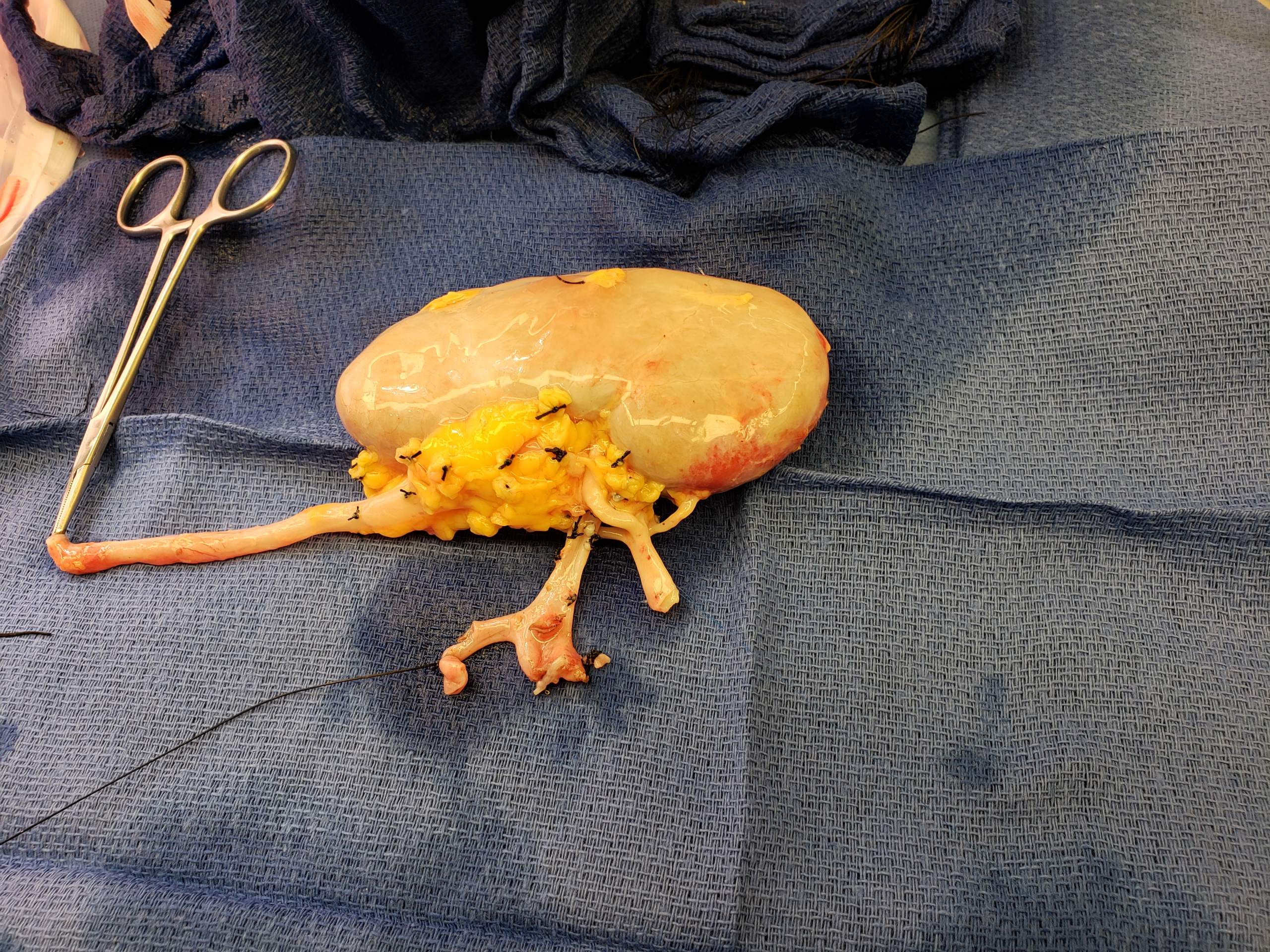|
Institute Of Liver And Biliary Sciences
The Institute of Liver and Biliary Sciences (ILBS) is a mono-superspeciality hospital for liver and biliary diseases located at New Delhi, India. It has been established by the Government of the National Capital Territory (NCT) of Delhi as an autonomous Institute, under the Societies Registration Act - 1860, at New Delhi with Shiv Kumar Sarin as its founding director. ILBS is a teaching hospital and has been given the status of Deemed University by the University Grants Commission (UGC) of India. ILBS has been created by the Government of Delhi to make it a dedicated international center of excellence for the diagnosis and management of liver and biliary diseases and to provide advanced training and research in the field of Hepato-biliary Sciences. History The foundation stone of ILBS was laid in 2003. The first phase of ILBS was built by the Public Works Department (PWD). The first phase was completed in 2009. The formal inauguration of the hospital took place on 14 January ... [...More Info...] [...Related Items...] OR: [Wikipedia] [Google] [Baidu] |
Hospital
A hospital is a health care institution providing patient treatment with specialized health science and auxiliary healthcare staff and medical equipment. The best-known type of hospital is the general hospital, which typically has an emergency department to treat urgent health problems ranging from fire and accident victims to a sudden illness. A district hospital typically is the major health care facility in its region, with many beds for intensive care and additional beds for patients who need long-term care. Specialized hospitals include trauma centers, rehabilitation hospitals, children's hospitals, seniors' (geriatric) hospitals, and hospitals for dealing with specific medical needs such as psychiatric treatment (see psychiatric hospital) and certain disease categories. Specialized hospitals can help reduce health care costs compared to general hospitals. Hospitals are classified as general, specialty, or government depending on the sources of income received. A teachi ... [...More Info...] [...Related Items...] OR: [Wikipedia] [Google] [Baidu] |
Shiela Dixit
Sheila Dikshit () (née Kapoor; 31 March 1938 – 20 July 2019) was an Indian politician. The longest-serving Chief Minister of Delhi, as well as the longest-serving List of female Indian chief ministers, female chief minister of any Indian state, she served for a period of 15 years beginning in 1998. Dikshit led Congress party to three consecutive electoral victories in Delhi. Dikshit lost the December 2013 elections of the Delhi Legislative Assembly to the Bharatiya Janata Party, though Aam Aadmi Party formed a minority government with outside support from the INC, with Arvind Kejriwal as the chief minister. She briefly served as the List of Governors of Kerala, Governor of Kerala in 2014. Dikshit was later declared a chief ministerial candidate for the Indian National Congress in the 2017 Uttar Pradesh Legislative Assembly election, but withdrew her nomination. She was appointed president of Delhi Pradesh Congress Committee on 10 January 2019 and remained in office until her ... [...More Info...] [...Related Items...] OR: [Wikipedia] [Google] [Baidu] |
Government Buildings Completed In 2009
A government is the system or group of people governing an organized community, generally a state. In the case of its broad associative definition, government normally consists of legislature, executive, and judiciary. Government is a means by which organizational policies are enforced, as well as a mechanism for determining policy. In many countries, the government has a kind of constitution, a statement of its governing principles and philosophy. While all types of organizations have governance, the term ''government'' is often used more specifically to refer to the approximately 200 independent national governments and subsidiary organizations. The major types of political systems in the modern era are democracies, monarchies, and authoritarian and totalitarian regimes. Historically prevalent forms of government include monarchy, aristocracy, timocracy, oligarchy, democracy, theocracy, and tyranny. These forms are not always mutually exclusive, and mixed govern ... [...More Info...] [...Related Items...] OR: [Wikipedia] [Google] [Baidu] |
Hospital Buildings Completed In 2009
A hospital is a health care institution providing patient treatment with specialized health science and auxiliary healthcare staff and medical equipment. The best-known type of hospital is the general hospital, which typically has an emergency department to treat urgent health problems ranging from fire and accident victims to a sudden illness. A district hospital typically is the major health care facility in its region, with many beds for intensive care and additional beds for patients who need long-term care. Specialized hospitals include trauma centers, rehabilitation hospitals, children's hospitals, seniors' (geriatric) hospitals, and hospitals for dealing with specific medical needs such as psychiatric treatment (see psychiatric hospital) and certain disease categories. Specialized hospitals can help reduce health care costs compared to general hospitals. Hospitals are classified as general, specialty, or government depending on the sources of income received. A teaching ... [...More Info...] [...Related Items...] OR: [Wikipedia] [Google] [Baidu] |
National Institutional Ranking Framework
The National Institutional Ranking Framework (NIRF) is a methodology adopted by the Ministry of Education (India), Ministry of Education, Government of India, to rank institutions of higher education in India. The Framework was approved by the MHRD and launched by Minister of Human Resource Development on 29 September 2015. Depending on their areas of operation, institutions have been ranked under 11 different categories – overall, university, colleges, engineering, management, pharmacy, law, medical, architecture, dental and research. The Framework uses several parameters for ranking purposes like resources, research, and stakeholder perception. These parameters have been grouped into five clusters and these clusters were assigned certain weightages. The weightages depend on the type of institution. About 3500 institutions voluntarily participated in the first round of rankings. NIRF was allotted a budget of for 2021–22. Background The 2017 ranked lists were released ... [...More Info...] [...Related Items...] OR: [Wikipedia] [Google] [Baidu] |
Radiology
Radiology ( ) is the medical discipline that uses medical imaging to diagnose diseases and guide their treatment, within the bodies of humans and other animals. It began with radiography (which is why its name has a root referring to radiation), but today it includes all imaging modalities, including those that use no electromagnetic radiation (such as ultrasonography and magnetic resonance imaging), as well as others that do, such as computed tomography (CT), fluoroscopy, and nuclear medicine including positron emission tomography (PET). Interventional radiology is the performance of usually minimally invasive medical procedures with the guidance of imaging technologies such as those mentioned above. The modern practice of radiology involves several different healthcare professions working as a team. The radiologist is a medical doctor who has completed the appropriate post-graduate training and interprets medical images, communicates these findings to other physicians ... [...More Info...] [...Related Items...] OR: [Wikipedia] [Google] [Baidu] |
Urology
Urology (from Greek οὖρον ''ouron'' "urine" and '' -logia'' "study of"), also known as genitourinary surgery, is the branch of medicine that focuses on surgical and medical diseases of the urinary-tract system and the reproductive organs. Organs under the domain of urology include the kidneys, adrenal glands, ureters, urinary bladder, urethra, and the male reproductive organs (testes, epididymis, vas deferens, seminal vesicles, prostate, and penis). The urinary and reproductive tracts are closely linked, and disorders of one often affect the other. Thus a major spectrum of the conditions managed in urology exists under the domain of genitourinary disorders. Urology combines the management of medical (i.e., non-surgical) conditions, such as urinary-tract infections and benign prostatic hyperplasia, with the management of surgical conditions such as bladder or prostate cancer, kidney stones, congenital abnormalities, traumatic injury, and stress incontinence. Urologi ... [...More Info...] [...Related Items...] OR: [Wikipedia] [Google] [Baidu] |
Kidney Transplantation
Kidney transplant or renal transplant is the organ transplant of a kidney into a patient with end-stage kidney disease (ESRD). Kidney transplant is typically classified as deceased-donor (formerly known as cadaveric) or living-donor transplantation depending on the source of the donor organ. Living-donor kidney transplants are further characterized as genetically related (living-related) or non-related (living-unrelated) transplants, depending on whether a biological relationship exists between the donor and recipient. Before receiving a kidney transplant, a person with ESRD must undergo a thorough medical evaluation to make sure that they are healthy enough to undergo transplant surgery. If they are deemed a good candidate, they can be placed on a waiting list to receive a kidney from a deceased donor. Once they are placed on the waiting list, they can receive a new kidney very quickly, or they may have to wait many years; in the United States, the average waiting time is three t ... [...More Info...] [...Related Items...] OR: [Wikipedia] [Google] [Baidu] |
Pulmonary Medicine
Pulmonology (, , from Latin ''pulmō, -ōnis'' "lung" and the Greek suffix "study of"), pneumology (, built on Greek πνεύμων "lung") or pneumonology () is a medical specialty that deals with diseases involving the respiratory tract.ACP: Pulmonology: Internal Medicine Subspecialty . Acponline.org. Retrieved on 2011-09-30. It is also known as respirology, respiratory medicine, or chest medicine in some countries and areas. Pulmonology is considered a branch of internal medicine, and is related to |
Hepatology
Hepatology is the branch of medicine that incorporates the study of liver, gallbladder, biliary tree, and pancreas as well as management of their disorders. Although traditionally considered a sub-specialty of gastroenterology, rapid expansion has led in some countries to doctors specializing solely on this area, who are called hepatologists. Diseases and complications related to viral hepatitis and alcohol are the main reason for seeking specialist advice. More than two billion people have been infected with hepatitis B virus at some point in their life, and approximately 350 million have become persistent carriers. Up to 80% of liver cancers can be attributed to either hepatitis B or hepatitis C virus. In terms of mortality, the former is second only to smoking among known agents causing cancer. With more widespread implementation of vaccination and strict screening before blood transfusion, lower infection rates are expected in the future. In many countries, however, overall ... [...More Info...] [...Related Items...] OR: [Wikipedia] [Google] [Baidu] |
Cardiology
Cardiology () is a branch of medicine that deals with disorders of the heart and the cardiovascular system. The field includes medical diagnosis and treatment of congenital heart defects, coronary artery disease, heart failure, valvular heart disease and electrophysiology. Physicians who specialize in this field of medicine are called cardiologists, a specialty of internal medicine. Pediatric cardiologists are pediatricians who specialize in cardiology. Physicians who specialize in cardiac surgery are called cardiothoracic surgeons or cardiac surgeons, a specialty of general surgery. Specializations All cardiologists study the disorders of the heart, but the study of adult and child heart disorders each require different training pathways. Therefore, an adult cardiologist (often simply called "cardiologist") is inadequately trained to take care of children, and pediatric cardiologists are not trained to treat adult heart disease. Surgical aspects are not included in cardiology ... [...More Info...] [...Related Items...] OR: [Wikipedia] [Google] [Baidu] |
Oncology
Oncology is a branch of medicine that deals with the study, treatment, diagnosis and prevention of cancer. A medical professional who practices oncology is an ''oncologist''. The name's etymological origin is the Greek word ὄγκος (''ónkos''), meaning "tumor", "volume" or "mass". Oncology is concerned with: * The diagnosis of any cancer in a person (pathology) * Therapy (e.g. surgery, chemotherapy, radiotherapy and other modalities) * Follow-up of cancer patients after successful treatment * Palliative care of patients with terminal malignancies * Ethical questions surrounding cancer care * Screening efforts: ** of populations, or ** of the relatives of patients (in types of cancer that are thought to have a hereditary basis, such as breast cancer) Diagnosis Medical histories remain an important screening tool: the character of the complaints and nonspecific symptoms (such as fatigue, weight loss, unexplained anemia, fever of unknown origin, paraneoplastic phenome ... [...More Info...] [...Related Items...] OR: [Wikipedia] [Google] [Baidu] |




